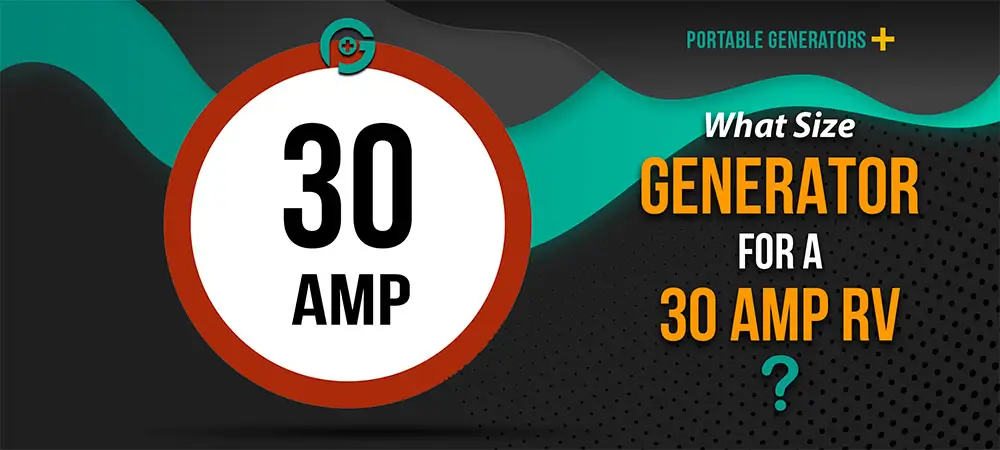What size generator for 30 amp RV? - Quick Answer...
Generally, a 3,000W generator should do the trick, but going for a 3,500W offers a safety cushion.
Given that a 30amp RV electrical system generally caps at 3,600W, opting for a 4,000W generator or higher means you’d be overspending on that extra 400+W and unnecessarily using up extra fuel. Look below for heaps more info.
Introduction
Question: What size generator for 30 amp rv?
So, you’ve got yourself an RV, and you’re excited to hit the road, but now you’re faced with the question of what size generator you need for your 30 Amp RV.
Worry not, we’ve got you covered! In this article, we will explore the various factors to consider when determining the right size generator for your specific 30 amp RV needs. Whether you’re planning a weekend getaway or a long camping trip, we’ll help you find the perfect generator that will provide you with all the power you need to enjoy a comfortable and convenient RV experience. Let’s get started!
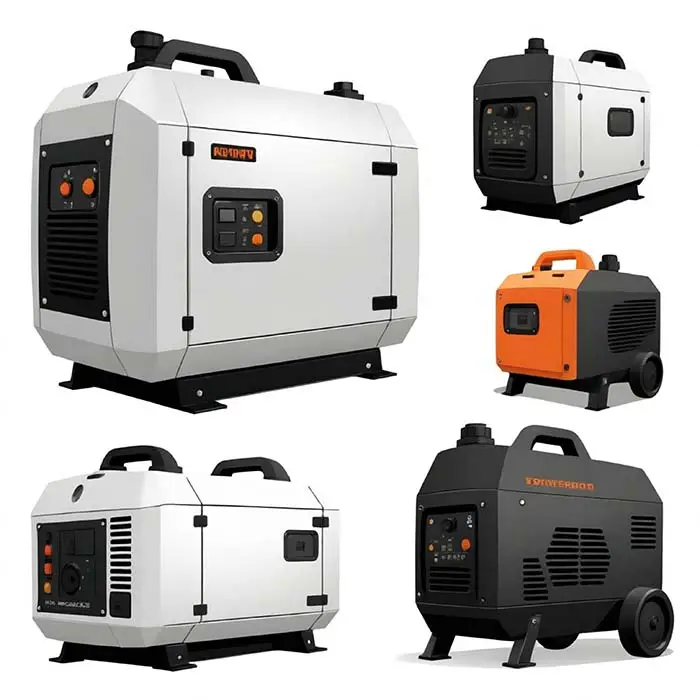
NOTE: We know the way the question “What size generator for 30 amp rv?” is kind of poorly written but it is the way the question is searched for. So as appear as an answer in the SERP’s we have to quote the question as asked. Thanks.
Understanding the Power Requirements of a 30 Amp RV
What is a 30 Amp RV?
A 30 Amp RV, or recreational vehicle, is a type of vehicle that includes living quarters for accommodation. It is commonly used for camping, road trips, or as a mobile residence.
The term “30 Amp” refers to the electrical system of the RV, specifically the maximum electrical current it can handle. This determines the amount of power the RV can consume at any given time.
How much power does a 30 Amp RV require?
To understand the power requirements of a 30 Amp RV, it is essential to know that the electrical system of the RV provides a maximum of 30 Amps, or 3,600 Watts, of power.
This means that the total power consumption of all the appliances, electronics, and systems in the RV should not exceed this limit. It is crucial to consider the power usage of each individual appliance and calculate the cumulative power consumption to ensure that it does not exceed the 30 Amp limit.
Factors to Consider When Choosing a Generator
Total Power Output
When choosing a generator for your 30 Amp RV, the total power output is a critical factor to consider. The generator should be capable of supplying enough power to meet the demands of your RV’s appliances and systems.
It is recommended to select a generator with a power output slightly higher than the cumulative power consumption of your RV to provide a safety margin and avoid overloading the generator.
Fuel Type
Another factor to consider is the fuel type of the generator. Common options include gasoline, propane, and diesel. Gasoline generators are readily available and relatively affordable, but they may consume more fuel compared to other options.
Propane generators offer cleaner burning and greater fuel efficiency, while diesel generators are known for their longevity and durability. Consider your preferences, availability of fuel, and environmental impact when choosing the fuel type for your generator.
Noise Level
The noise level of a generator is an important consideration, especially when camping or staying in residential areas. Generators can produce varying levels of noise, and it is essential to choose a model that operates quietly or comes with noise-reducing features.
Look for generators specifically designed for quiet operation to ensure a more enjoyable camping experience for you and your fellow campers.
Portability
Portability is another factor to keep in mind when selecting a generator for your 30 Amp RV. You may need to move the generator around your RV or campground, and having a portable and lightweight generator can make this task much easier. Consider the size, weight, and additional features, such as wheels or handles, that contribute to the portability of the generator.
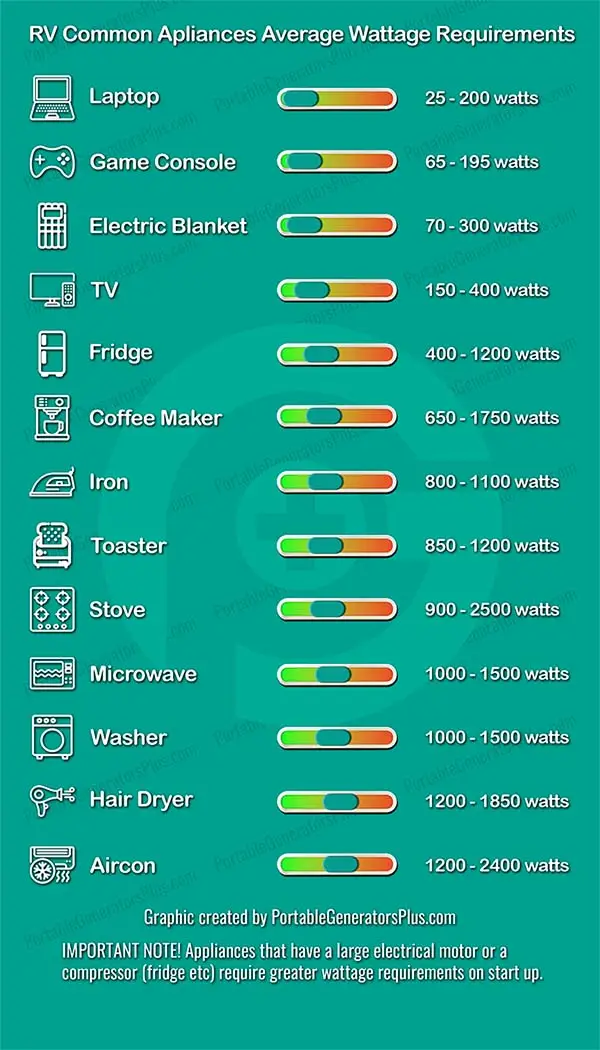
NOTE: We know the way the question “What size generator for 30 amp rv?” is kind of poorly written but it is the way the question is searched for. So as appear as an answer in the SERP’s we have to quote the question as asked. Thanks.
Generator Power Output Options
3000-Watt Generator
A 3000-watt generator is a popular choice for 30 Amp RVs due to its sufficient power output. It can handle most of the essential appliances and systems found in an RV, such as the fridge, aircon, lights, and smaller electronics. However, it may struggle with high-power-consuming appliances, such as electric ovens or heaters, which can exceed its capacity.
3500-Watt Generator
A 3500-watt generator provides slightly more power compared to a 3000-watt generator. This additional power can handle a wider range of appliances and electronics, including some high-power-consuming devices. With a 3500-watt generator, you can comfortably operate various appliances in your 30 Amp RV without worrying about exceeding its power limits.
4000- 5000 Watt Generator
In general terms:
- A 4,000-watt generator delivers about 33.3 amps at 120 volts or 16.6 amps at 240 volts.
- A 5,000-watt generator gives roughly 41.6 amps at 120 volts or 20.8 amps at 240 volts.
Both these exceed our 30 amp limit on our 120-volt systems and should really be avoided.
Always refer to the owner’s manual of the specific generator you’re considering for precise details.
Other Options
While the aforementioned generator power output options are commonly used for 30 Amp RVs, there are other choices available in the market. Depending on your specific power requirements, you may find generators with different power outputs that suit your needs.
It is crucial to calculate the power consumption of your RV appliances and choose a generator that can comfortably meet those needs.
Calculating the Power Consumption of Your RV Appliances
Identifying the Amp Rating
To accurately calculate the power consumption of each RV appliance, you need to identify the amp rating of each device. The amp rating is a measurement of the electrical current required by the appliance to operate.
It is typically indicated on the appliance or its user manual. Make a list of all the appliances and their respective amp ratings in order to proceed with the power consumption calculation.
Determining the Running Watts
Once you have the amp ratings, you can determine the running watts of each appliance. To do this, multiply the amp rating by the voltage of your RV’s electrical system, which is typically 120 volts.
For example, an appliance with a 10-amp rating would require 1200 running watts (10 Amps * 120 Volts = 1200 Watts). Repeat this calculation for each appliance and record the running wattage for each device.
Accounting for Surge or Starting Watts
Certain appliances, such as refrigerators or air conditioners, require additional power during startup or for specific functions. This additional power is known as surge or starting watts.
The surge wattage can be significantly higher than the running watts. Check the specifications or manuals of your appliances to determine the surge wattage and add it to the running wattage for those devices.
Summing Up the Power Consumption
After calculating the running and surge wattage for each appliance, you can sum up the power consumption to determine the total power requirements of your RV. Add the running watts of all the appliances together, then add the surge watts of the devices that have surge requirements.
This total power consumption should be compared to the capacity of the generator to ensure it falls within the 30 Amp limit.
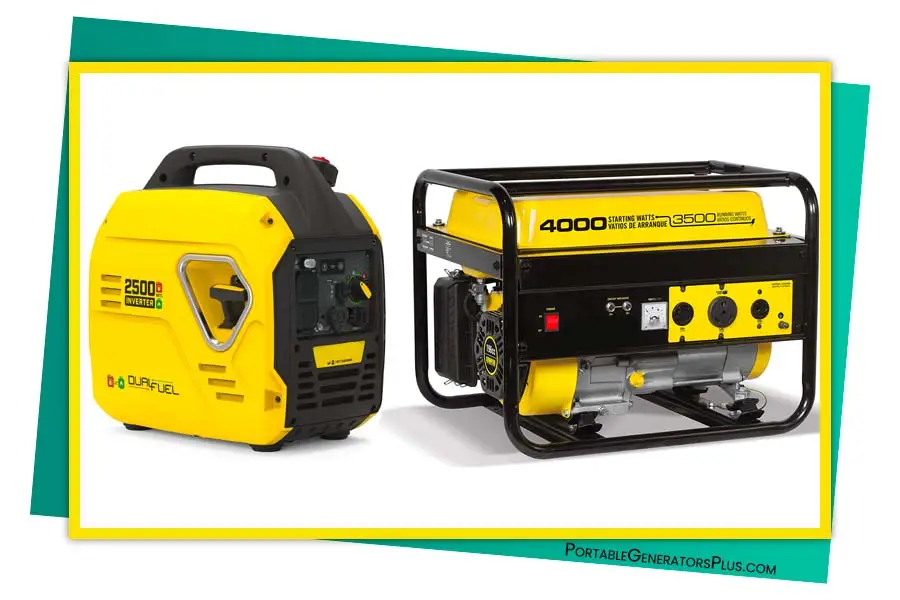
NOTE: We know the way the question “What size generator for 30 amp rv?” is kind of poorly written but it is the way the question is searched for. So as appear as an answer in the SERP’s we have to quote the question as asked. Thanks.
Considering Other Power Needs
Air Conditioner Usage
Air conditioners are one of the most power-consuming devices in an RV. When considering the power needs of your 30 Amp RV, it is crucial to account for the power requirements of your air conditioner.
Air conditioners can consume a significant amount of power, especially during hot summer days. Ensure that your generator can handle the power demand of your air conditioner, or consider alternatives such as using a separate generator solely for the air conditioner.
Battery Charging
Battery charging is another factor to consider when calculating your RV’s power needs. Your RV batteries require regular charging to maintain their functionality. The charging method and power requirements vary depending on the type and size of your RV batteries.
Consider the charging power and duration when choosing a generator or alternative power source to ensure that your batteries are adequately charged for your camping or road trip needs.
Additional Appliances or Electronics
Apart from the essential appliances in your RV, you may also have additional devices or electronics that require power. This can include televisions, laptops, gaming consoles, and other entertainment systems.
It is essential to calculate the power consumption of these devices and factor them into your overall power requirements. Many 30 Amp RVs may not have enough capacity to handle all appliances and electronics simultaneously, so prioritization may be necessary.
Benefits of Right-Sized Generators
Efficiency and Fuel Economy
Using a generator with the appropriate power output for your 30 Amp RV offers several benefits, including improved efficiency and fuel economy. When a generator is properly matched to your RV’s power needs, it operates at optimal load levels, minimizing wastage of fuel and reducing fuel consumption.
This can result in longer runtime and fewer refueling stops, allowing you to enjoy your camping experience without interruptions.
Noise Reduction
Right-sized generators also contribute to noise reduction. Since they are not strained or overloaded, they operate at lower RPMs (revolutions per minute), leading to quieter operation.
This is super beneficial, especially when camping in quiet or residential areas, as it helps maintain a peaceful environment for you and your neighbors. Consider generators with noise-reducing features if noise reduction is a priority for you.
Proper Functionality and Equipment Lifespan
By using a generator that matches the power requirements of your 30 Amp RV, you ensure proper functionality and extend the lifespan of your appliances and electronics.
Overloading a generator can lead to voltage fluctuations or inadequate power supply, which can result in damage to sensitive electronics or reduced efficiency of appliances. Using a generator that provides sufficient power safeguards against these issues, allowing your RV systems to operate optimally and, in turn, promotes the longevity of your equipment.
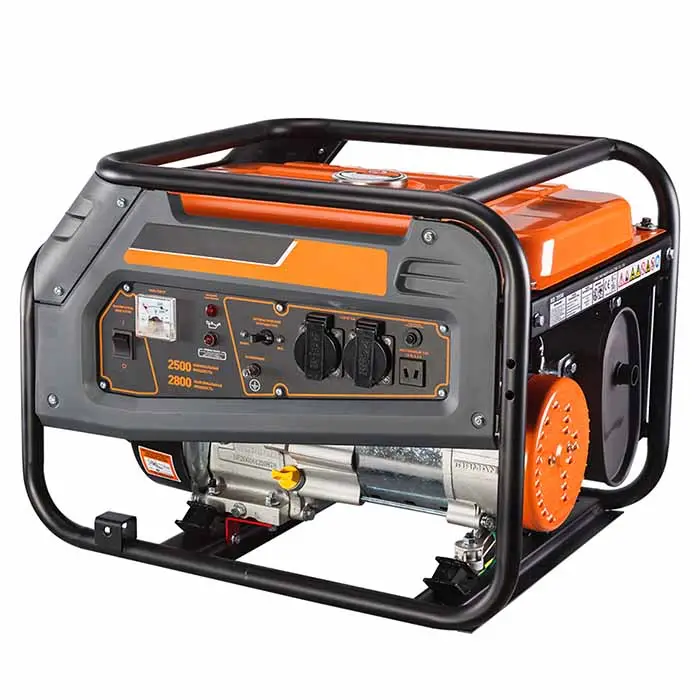
NOTE: We know the way the question “What size generator for 30 amp rv?” is kind of poorly written but it is the way the question is searched for. So as appear as an answer in the SERP’s we have to quote the question as asked. Thanks.
Tips for Proper Generator Usage with a 30 Amp RV
Matching Generator Capacity
To ensure proper generator usage with your 30 Amp RV, it is crucial to match the generator capacity to your power requirements. Consider the total power consumption of your appliances, electronics, and systems, and choose a generator with a power output that exceeds this total.
This ensures that you have enough power to operate all your devices without overloading the generator.
Distributing Load Properly
Properly distributing the load across the circuits in your RV is another important tip to prevent overloading the generator. Spread out the operation of high-power-consuming appliances, such as air conditioners or electric heaters, to different circuits or time intervals.
This helps prevent power spikes and allows the generator to handle the power demand more efficiently.
Using Surge Protectors
Another helpful tip is to use surge protectors for sensitive electronics and appliances. Surge protectors can prevent voltage spikes or surges from damaging your devices, especially during startup or sudden power fluctuations. Invest in high-quality surge protectors and ensure they are properly rated for your RV’s power needs.
Regular Maintenance and Inspection
Regular maintenance and inspection of your generator are essential for proper usage and longevity. Follow the manufacturer’s guidelines for maintenance tasks such as oil changes, filter replacements, and inspections of various components.
Regularly inspect the generator for any signs of wear, damage, or leaks. A well-maintained generator operates more reliably and efficiently, ensuring a smooth and trouble-free camping experience.
Safety Considerations for Generator Usage
Carbon Monoxide Poisoning
The risk of carbon monoxide poisoning is a crucial safety consideration when using a generator with your 30 Amp RV. Generators produce exhaust fumes that contain carbon monoxide, a colorless and odorless gas that can be lethal if inhaled in high concentrations.
It is vital to place your generator away from open windows, vents, or any area where the fumes can accumulate. Always operate the generator in a well-ventilated area, and consider using carbon monoxide detectors to provide an additional layer of safety. Some portable generators have a built-in CO detector.
Generator Positioning and Ventilation
In addition to carbon monoxide poisoning, proper generator positioning and ventilation are essential for generator safety. Ensure that the generator is placed on a stable and level surface, away from flammable materials or sources of heat.
Keep the generator dry and protected from the elements to prevent any water damage. If using a portable generator, be mindful of its proximity to your RV or any other structures, allowing adequate clearance for exhaust fumes and heat dissipation.
Electrical Safety
Electrical safety is another critical aspect to consider when using a generator with your 30 Amp RV. Always follow the manufacturer’s instructions and guidelines for connecting your RV to the generator. Use proper, undamaged, and adequately rated power cords and adapters.
Be cautious when working with electrical connections, and avoid overloading the generator or electrical circuits. If you are unsure about any electrical aspect, consult a professional electrician for guidance.
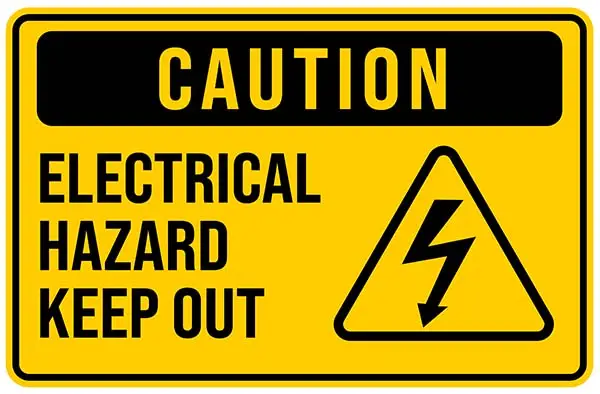
NOTE: We know the way the question “What size generator for 30 amp rv?” is kind of poorly written but it is the way the question is searched for. So as appear as an answer in the SERP’s we have to quote the question as asked. Thanks.
Alternative Power Sources for RVs
Solar Panels
Solar panels provide an environmentally friendly and renewable source of power for RVs. By harnessing energy from the sun, solar panels convert sunlight into electricity, which can be used to charge your RV’s batteries or directly power appliances.
Depending on the size and efficiency of your solar panel system, you may be able to offset a significant portion of your power needs or even operate entirely off-grid.
Wind Generators
Wind generators, also known as wind turbines, utilize wind energy to generate electricity. These turbines typically consist of blades that rotate with the wind, driving a generator to produce power.
Wind generators can be a viable alternative power source for RVs, especially in areas with consistent wind patterns. However, they require sufficient wind speeds to generate substantial power, making them more suitable for certain locations or climates.
Dual-Fuel Inverter Generators
Dual-fuel inverter generators offer the flexibility of using either gasoline or propane as a fuel source. These generators combine the advantages of both fuels, providing options for extended runtime or cleaner burning, depending on your preferences and the availability of fuel.
Dual-fuel inverter generators are often quieter, more fuel-efficient, and emit fewer emissions compared to traditional generators.
Conclusion
Understanding the power requirements of a 30 Amp RV is crucial for ensuring a reliable and enjoyable experience while on the road or camping. Consider factors such as total power output, fuel type, noise level, and portability when choosing a generator.
Calculate the power consumption of your RV appliances and factor in additional power needs such as air conditioner usage, battery charging, and other devices. Using a right-sized generator ensures efficiency, noise reduction, and proper functionality of your RV equipment. Follow proper generator usage tips and safety considerations to mitigate any risks.
Finally, explore alternative power sources for RVs, such as solar panels, wind generators, or dual-fuel inverter generators. By understanding and meeting the power requirements of your 30 Amp RV, you can enhance your camping experience and enjoy the comforts of home on the road.
Hope this was helpful, and thanks for reading.
Cheers!

